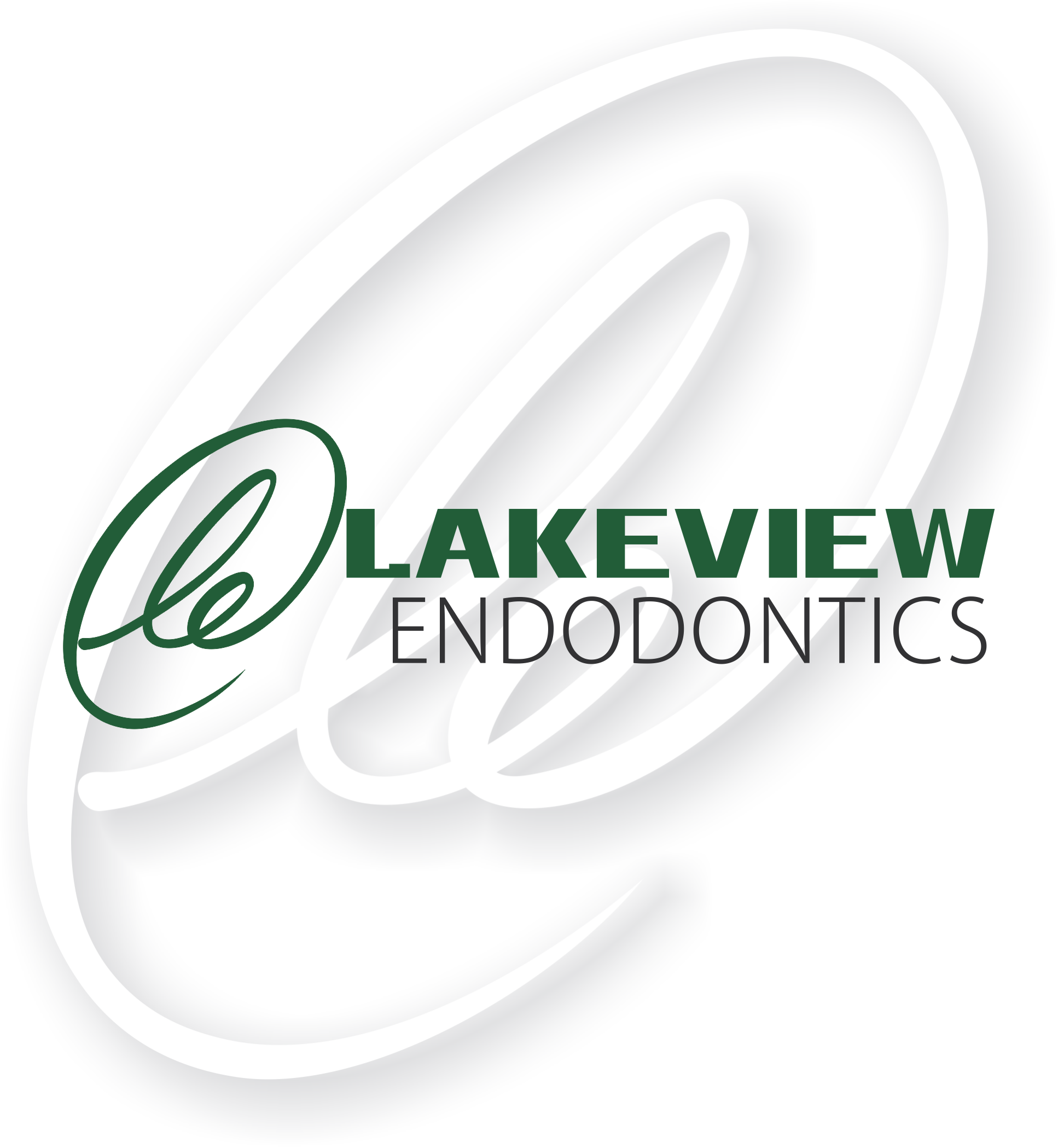Frequently Asked Questions
The root canal is the space within the tooth and roots that houses the pulp, which consists of the nerve supply, blood vessels, and other types of tissue. Endodontics is the specialty within dentistry that treats pulpal disease or injury and associated conditions of the tissues around the end of the tooth root. Our team at Lakeview Endodontics has multiple extra years of specialty training in the field and utilizes the most advanced techniques and materials.
Pulpal infection or inflammation most commonly occurs when there is a large cavity or filling near the pulp. It can also be a result of trauma, cracks, or fractures of the tooth or roots. This can result in pain when chewing, sensitivity to hot or cold, swelling in the gums, or discoloration of the tooth. Conversely, infection or inflammation of the pulp can be totally asymptomatic. Root canal treatment is completed in order to treat the infection or inflammation, allowing for retention of the natural tooth and root.
There are two kinds of root canal treatment:
- Root canal therapy: This is completed by the endodontist through the crown of the tooth removing the infected or inflamed pulp and cleaning and sealing the space.
- Root canal surgery: When non-surgical root canal therapy is not adequate, it may indicate that the infection at the end of the root is too severe to cleaned through the crown of the tooth. Root canal surgery is then completed to address the root end directly through a small incision in the gums.
First, the endodontist will administer the appropriate amount of anesthesia in order to make you comfortable throughout the entire procedure. A rubber dam will be placed over your tooth to isolate it, keeping it dry and clean. The pulp is accessed through the crown of the tooth and removed using small instruments. A number of medications will be used to remove debris and disinfect the root canal space. The root canal space will then be sealed with a permanent root filling. Finally, a temporary filling will be placed in the crown of the tooth, which will eventually be replaced with a permanent restoration by your general dentist. Depending on the severity of the pre-operative situation, root canal treatment will be completed between one to two appointments, each lasting approximately 90 minutes.
Patients with severe pain or swelling may require emergency root canal treatment. This may also be the case with traumatic accidents in which the tooth fractures into the pulp. At Lakeview Endodontics, we reserve time to see emergency patients. If you are experiencing any of the above, please call our office—we are happy to walk you through the best course of treatment in order to get you out of pain as quickly as possible.
The vast majority of root canal treatment is done under local anesthetic, which is numbing of the area where the treatment will be completed. The specialists at Lakeview Endodontics also offer other sedation or anesthesia options, including conscious sedation and nitrous oxide.
Root canal treatment has a reputation for being painful, but in fact, patients undergoing this procedure generally experience little to no pain whatsoever. Post-operatively, patients may experience mild soreness that is usually manageable with over the counter analgesics. It is also not uncommon to have no pain post-operatively. Since root canal treatment is also completed frequently to treat cases of severe pain, the specialists at Lakeview Endodontics are able to prescribe the appropriate amount of anesthesia and pain medication on a case-by-case basis. Most people are able to return to everyday activities the following day or even the same day. At our office, we are happy to answer all of your questions in order to walk you through the process of root canal treatment step by step.
Yes, for most root canal treatments, we recommend that patients return to the office one year after the procedure was finished. Our office will send a reminder notice to you when you are due for your follow-up appointment. In the meantime, it is of the utmost importance that you see your general dentist to have the tooth permanently restored 2-3 weeks after treatment is completed in our office
No. While radiographs (x-ray images) will be necessary during your endodontic treatment, we use an advanced non-film computerized system, called digital radiography, that produces radiation levels up to 90 percent lower than those of already low dose conventional dental x-ray machinery. These digital images can be optimized, archived, printed, and sent to your restorative dentist via secure e-mail or portal that is HIPAA compliance.
